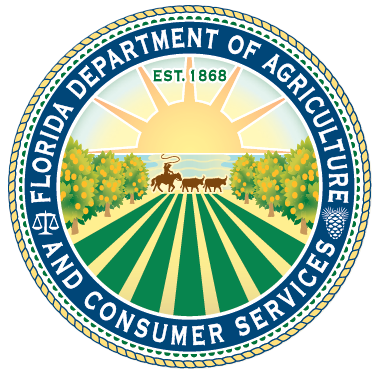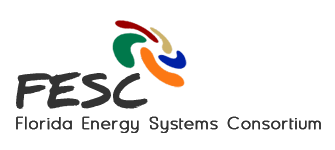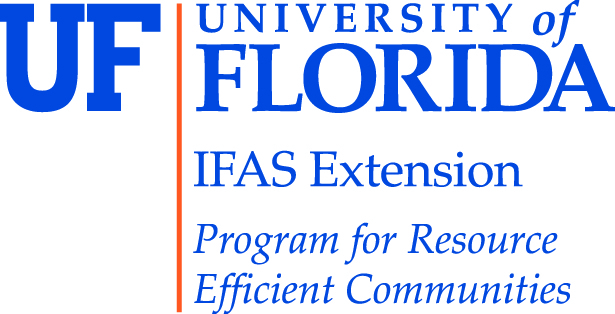Credit: This resource is reproduced in full, with mild formatting and URL hotlink edits, from the fact sheet, UF/IFAS – Energy Efficient Homes: Home Inspections (EDIS-FCS3279), [1] by Kathleen C. Ruppert, Randall A. Cantrell, Christine Swanson, and Building a Safer Florida [2]
This fact sheet discusses four categories of state regulated inspectors: home inspectors, energy raters, mold assessors, and wood-destroying organisms (WDO) inspectors along with a non-state regulated category for water efficiency. Each category has different ways to help you save energy depending on the type of inspection performed.
Quick Facts
- A professional home inspection can verify the condition of a house for purchase as well as identify the need for recommended repairs and/or upgrades for homeowners.
- By Florida law, only State-certified Energy Raters may provide energy-rating services. Certified energy auditors and utility auditors are not home inspectors, nor are they Home Energy Raters.
- Home energy ratings can be used for either existing homes or new homes. Existing homeowners can use them to consider options for upgrading a home’s energy efficiency. New home buyers can use them to compare the energy efficiency of homes they are considering for purchase.
- Wood-Destroying Organism (WDO) inspectors are not the same as home inspectors. WDO inspectors only inspect homes for termites and other wood destroying organisms. See Choosing a Licensed Wood-Destroying Organism (WDO) Inspector for more information on this topic.
- Enforcement of licensing requirements for home inspectors, mold assessors, and mold remediators in Florida, through the Florida Department of Business and Professional Regulation, began July 1, 2011.
How do you choose a home inspector?
Like anything else, a home inspection is only as good as the inspector doing the work. It is in your best interest to carefully verify the qualifications of any inspector you consider hiring.
Step 1: Basic qualification check
First, make sure any home inspector has expertise on the specific subject for inspection—expertise on plumbing is not the same as expertise on carpentry. Second, verify any business background or license(s) held by the home inspector (see below for how to do this). These two preliminary measures apply to all types of inspectors.
Step 2: Further specifics
Once you know your home inspector is generally qualified, you will want to check two additional specific items. First, you should request a copy of the home inspector’s contract, agreement, or proposal and read the fine print to determine exactly what you will get for your money. The Florida Administrative Code (F.A.C.) 61-30.801 through 61-30.811, under Rule Chapter 61-30, Chapter Title: Home Inspectors contains specific Standards of Practice on what to expect in a home inspection. Second, you should request that the home inspector provide you with a list of current and past customers as well as a list of references. This enables you to learn more about the experience and track record of the home inspector. You should take the time to check with several references on the list. In addition, you should study the list of customers. Count the number of customers, and see how many are builders and how many are residential property owners—the more residential customers, the better.
Generally, the higher the price, the more comprehensive or complete the service will be. However, a higher price may also be associated with a greater level of expertise or experience. When comparing prices for home inspections, it is very important to compare the actual service and qualifications at the same time. An easy way to do this is to create a simple chart listing:
Table 1. Comparing home inspectors
| Individual or company name | Price | Inspector qualification(s) | Level of service (what they will do) |
| Example Company 1 | Example $ | Example qualification(s) | Example scope of work |
Your chart will quickly show you that a lower price is not always the best way to choose a home inspector. If seeking more information regarding the Florida Statutes related to home inspectors, see Part XV, Home Inspectors.
A good home inspection helps the home buyer understand the condition of the home systems and appliances plus replacement and maintenance expenses. “Regular maintenance helps everything in your home operate better, more efficiently, and more safely. It can also help you avoid an unexpected (and expensive!) system failure in the future.” (Excerpt from Lessons from a Home Inspection.”)
Conversely, if you are preparing your home for sale and would like to know what an inspector is going to most likely report to potential buyers about your home, it behooves you to obtain an inspector’s report prior to listing your home for sale. This is the surest method for avoiding any surprises when you do list your home on the market and begin showing it to potential buyers because you have already taken care of issues that the buyers’ inspectors will most likely find, thus minimizing the time required between when potential buyers decide to make an offer on your home and when you can deliver on the deficiencies requiring attention in the inspection report. In some case (e.g., septic system issues) the sale can potentially be terminated because of the time and money required to remediate the findings in the inspection report; whereas, if this information is known in advance and addressed, it can save surprises and disappointment.
What is a Home Energy Rating?
HERS (Home Energy Rating System) is a standardized evaluation of a home’s energy efficiency and expected energy costs. The home energy rating can qualify a homeowner or homebuyer for an energy-efficient mortgage (EEM), an energy-improvement mortgage (EIM), or other programs. See Home Energy Ratings for more information on the benefits of home energy ratings. When purchasing an existing home needing energy-efficient improvements, be sure to ask the lenders you contact to determine if they offer such mortgages. Replacing items such as an old or barely working heating and air conditioning system is much easier on the wallet if you include that cost into the mortgage rather than moving in and a month later needing to replace the unit with money out of pocket.
By Florida law (section 553.990, Florida Statutes), only those individuals certified by the state are allowed to provide an energy rating in Florida. These raters have undergone specialized training and passed the required exams. They are also required to take continuing education classes and pass further exams to keep their certification. In addition, all of their ratings are submitted to a central registry that checks for accuracy.
A HERS rating will help the home buyer consider the total cost of ownership which includes the house price plus the expected operating costs. “Home buyers can literally get more home for less money by taking advantage of the operating cost savings of improved energy efficiency. They also will get a higher-quality, more comfortable home.” See Why Do I Need a Home Energy Rating?
What about inspections for mold or fungus?
During the past few years, inspections for mold and fungus have become more specialized. If you need this type of inspection, you may want to seek an inspector who has completed specialized training. Inspectors who specialize in mold may also be mold assessors, while mold remediators are those persons who specialize in removing mold. Florida requires licensure specific to mold assessment or remediation. You should take the same care in selecting a person with this expertise as you would when hiring any other inspector or remediator.
Note that as of July 1, 2010, home inspectors, mold assessors, and mold remediators in Florida had to be licensed through the Florida Department of Business and Professional Regulation. Enforcement of this requirement began July 1, 2011. See Part XVI, Mold-Related Services, for Florida Statues related to mold-related services.
Though a mold inspection may not directly affect energy efficiency, it can help point out a system failure in a home. A few examples are: oversizing of the HVAC system, a too tight home without proper ventilation in moisture producing areas like the kitchen or bathroom, insufficient or irregular insulation creating condensation in the walls, roof and/or plumbing leaks, and a clogged AC condensate line dripping into the home.
What about inspections for WDOs (wood-destroying organisms)?
A licensed WDO (Wood-Destroying Organism) inspector will report visible and accessible wood-destroying organisms and/or damage. By Florida Statute definition, “Wood-destroying organism” means arthropod or plant life which damages and can reinfest seasoned wood in a structure, namely termites, powder-post beetles, old house borers, and wood-decaying fungi.” Certified WDO inspectors are licensed by the state and are required to carry an ID card containing the endorsement “WDO inspector.” A WDO inspection can be requested by the home buyer and in some cases is a requirement of the lending bank.
In order to understand the importance, and legalities of a WDO inspection, a home buyer can read the information on WDO inspectors at the Florida Department of Agriculture and Consumer Services web page, Florida Termite Help.
A WDO inspection, like a mold inspection, will not directly increase the energy efficiency of the home but can point out a potential system failure in the structure to the homeowner. Termites are attracted to moisture and food. A leaky pipe not only wastes water, it provides an attraction for termites. A humid underventilated crawl space, laundry room or bathroom are other examples of home system failure that can provide good habitat for termites.
What about inspections for water efficiency?
Water use within your home and landscape is not energy in and of itself, but the production of energy at most power plants uses water to cool the steam that spins electricity-generating turbines. Water also needs energy to be pumped, piped and, unless you are on a well, purified before it reaches your home. After use, unless you have a septic system, energy is also needed to treat the water at the sewage plant before release and/or reuse as irrigation water. Therefore, when conserving water, you are conserving both energy and water.
Many local governments and utilities in Florida offer home water audits to assist the homeowner in determining where water savings might be found. In some cases, there may be financial assistance available to make upgrades. The EPA WaterSense website can provide a homeowner with both general information and product specific content to make a home more water efficient.
Florida Water StarSM is a voluntary certification program for new and existing homes. Its intent is to encourage water efficiency in household appliances, plumbing fixtures, irrigation systems, and landscapes. The St. Johns River Water Management District (SJRWMD) and its partners created the Florida Water StarSM program in 2006 in response to the increasing strain on Florida’s water resources, and in 2012 it became a statewide program. This certification program, for new or existing homes, has three distinct categories:
- Interior – appliances, fixtures, and leak prevention to minimize water use and waste.
- Irrigation – increased efficiency through proper design and installation and improved scheduling practices and technologies.
- Landscaping – encouraging right plant, right place, drought tolerant plants and preserved vegetation to reduce outdoor water use.
This is one inspection you can do yourself (see the Florida Water StarSM Technical Manual) or, if you don’t feel comfortable in doing so, hire a certifier. More information is located at the Florida Water StarSM website.
Cautions:
- You should not hire an inspector/rater who also offers to perform any needed repairs or other work—this may be a conflict of interest (and, in some cases, illegal on the part of the inspector).
- Avoid hiring an inspector/rater who offers to recommend any contractor to perform repairs—this, too, is a red flag.
- It is also not a good idea to hire an inspector/rater who has worked for a builder or seller associated with the home prior to the inspection—the risk of a conflict of interest is greater in this situation.
- Think twice about hiring an inspector who worked as a contractor before becoming an inspector. Find out why this person is no longer working as a contractor. If the contractor’s license was revoked or suspended, this is not a good sign. However, if the inspector/contractor has chosen to shift to a lighter or less stressful schedule of work, this person may bring some of the best practical experience to the job.
Resources for more information
- You can search for information about the business entity (corporation or other form of business, length of time in existence, etc.) and for other or previous affiliations by searching under the inspector’s name at the document searches portion of the Florida Department of State, Division of Corporations free online search service or by calling 850-245-6939.
- Find information about any professional licenses held by the inspector (such as architect, engineer, contractor, building code administrator, etc.) by using the “verify a license” service offered by the Florida Department of Business and Professional Regulation or by calling 850-487-1395. You will first need to learn what licenses are held by the inspector, and then check for license validity and any record of violations. In addition to verifying licenses, be sure to check for any charges of unlicensed activity.
- Search for Certified Building Home Energy Raters in Florida at the EnergyGauge website.
- The Florida Department of Agriculture and Consumer Services (FDACS) maintains a database to verify a WDO inspector’s license at their Licensed Pesticide Applicator Search page.
- Check for any violations relating to workers’ compensation insurance (a common area for problems in construction) at the Division of Workers’ Compensation Compliance Proof of Coverage Search Page or by calling 800-742-2214.
- Your local county or municipal building department may provide verification of local or state license or any known problems. See the government section of your telephone book—look under “building,” “plans,” “inspections,” or “zoning.”
- Your local court records office may allow you to search under your inspector’s individual and business name to see if any litigation has been filed or is pending against the inspector. See the government section of your telephone book—look under “courts” or “clerk of court.”
For any professional or trade association membership listed by the inspector/rater, you can usually verify the existence or validity of the entity with a simple online search.
Footnotes
[1] This document is FCS3279, one of an Energy Efficient Homes series of the Department of Family, Youth and Community Sciences, Florida Cooperative Extension Service, Institute of Food and Agricultural Sciences, University of Florida. This material was initially prepared in June 2008 with the support of the Department of Environmental Protection, Florida Energy Office, which is now the Office of Energy, Florida Department of Agriculture and Consumer Services. This revised version was prepared June 2012 and updated in May 2015 with the support of the Florida Energy Systems Consortium (FESC). Note that this publication, originally titled Energy Efficient Homes: Home Inspections, was renamed in May 2015. Any opinions, findings, conclusions, or recommendations expressed herein are those of the author(s) and do not necessarily reflect the views of the sponsoring organizations. Please visit the EDIS website.
[2] Kathleen C. Ruppert, Extension scientist, Program for Resource Efficient Communities; Randall A. Cantrell, assistant professor, Department of Family, Youth and Community Sciences; Christine Swanson, program assistant, Program for Resource Efficient Communities; and Building a Safer Florida, Inc., 1400 Village Square Boulevard, Number 3-243, Tallahassee, FL 32312; Florida Cooperative Extension Service, Institute of Food and Agricultural Sciences, University of Florida, Gainesville, FL 32611.




